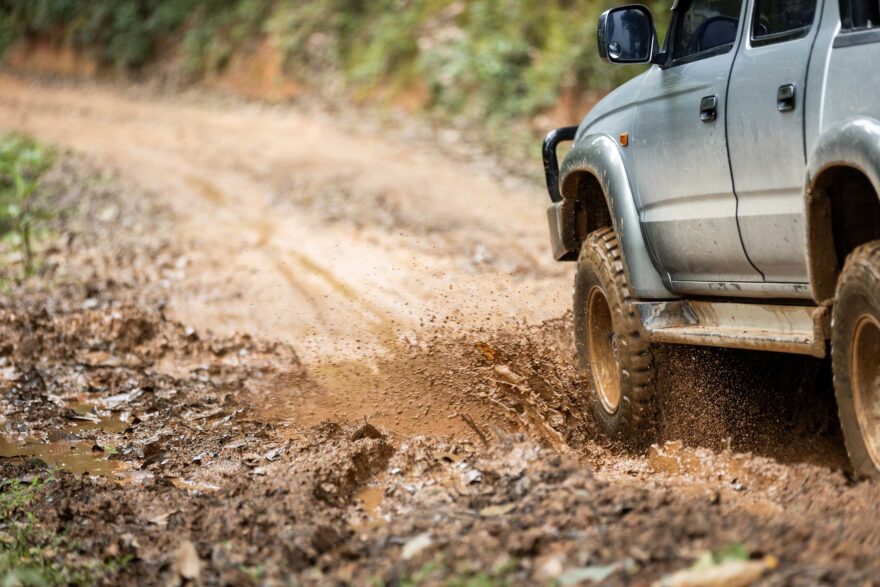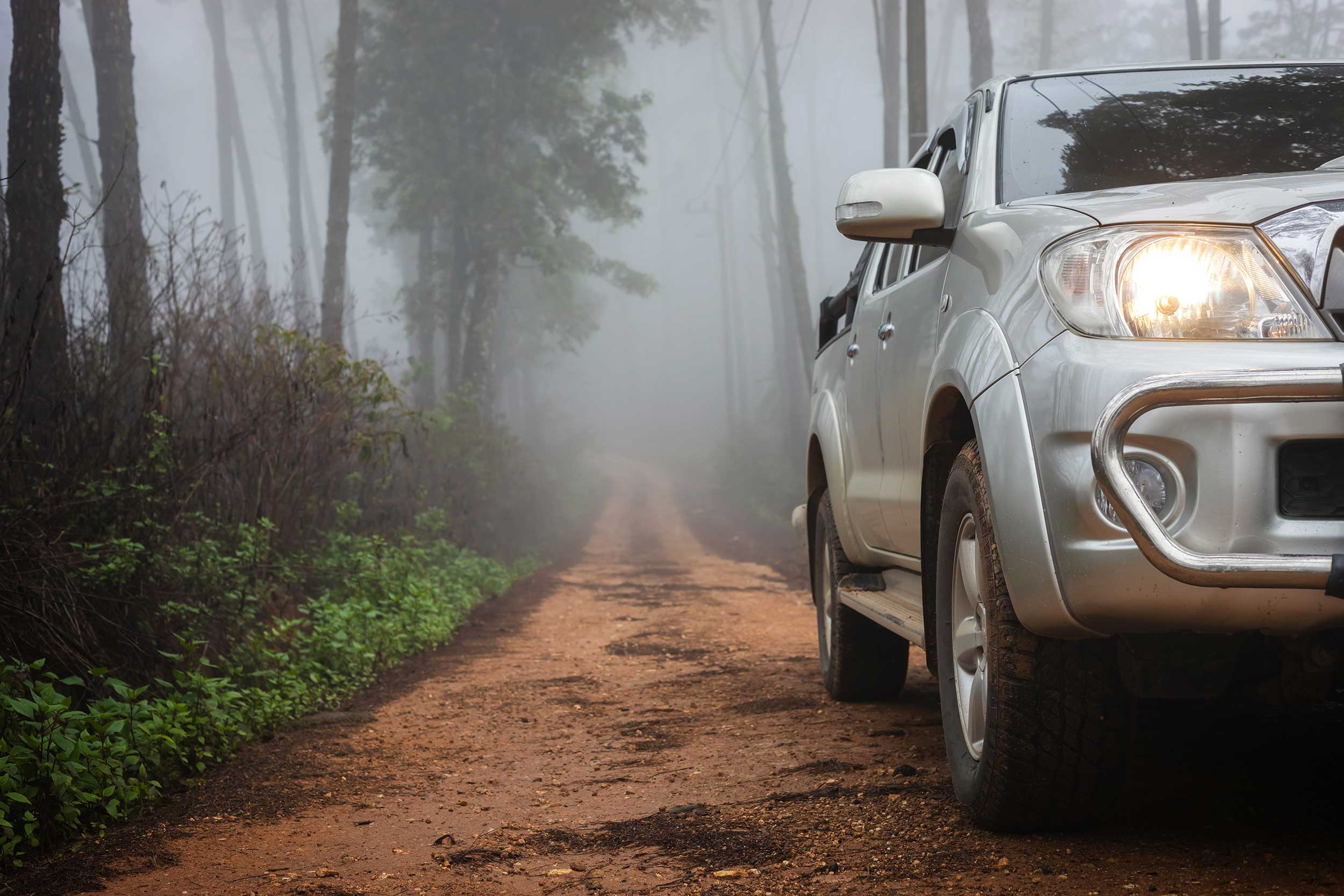
Image by Tinnakorn jorruang, Shutterstock
ActionHub and its parent company were paid a fee to publish this article unedited. The views or opinions expressed here are those of the author and may not reflect those of ActionHub or any of its affiliates.
Offroading is an exhilarating experience. You can experience the thrills and beauty of nature, find some secluded camping spots, and test what your truck or vehicle is capable of. However, offroading comes with risks; since these roads are unpaved or unmarked, you’ll need the right skill and gear to traverse off the beaten path safely. If you’re new to offroading or want to improve your skills, you must know how to prepare for hitting the trails.
Get Your Truck Inspected
Before going anywhere, make sure your car or truck is in tip-top shape. Change your oil, prepare your tires, ensure your brakes are healthy, and resolve any other issues. You’ll want to fill up your gas tank and consider bringing extra gas if traveling far from gas stations. Your tires should have the appropriate air pressure for certain terrains, like sand, water, or mud. Let your mechanic know where you’re headed terrain-wise, and they can inflate or deflate your tires to safe levels.
Bring Off Roading Gear
Offroading isn’t like a trip to the grocery store. Your truck or vehicle must have the right gear for traversing unpredictable terrain. Offroading gear includes a winch, mud tires, and traction boards to escape sticky situations. It doesn’t hurt to bring supplies like spare tires, tire inflators, extra gas, and jumper cables in emergencies.
Check the Weather
Keep an eye on the weather forecast. If there are heavy rains or chances of flash flooding, steer clear of offroading. Even a tiny amount of rain can bring on inescapable mud or river overflow, limiting your travel ability. Ensure the weather is clear with no chances of flash floods, tornadoes, heavy downpours, high winds, or fog for the best chances of safety.
Drive Cautiously
Offroad driving can be risky for multiple reasons. Uneven terrain, inclement weather, animals, and other drivers can appear anytime. Watch out for other drivers to avoid collisions or getting stuck. Approach mud, water, sand, or rocky trails with the right tools and supplies. Don’t overextend your truck or yourself. If other drivers are reckless and cause an accident, consult a truck accident lawyer to understand your rights and the insurance claim process.
Practice Offroading Techniques
Offroading involves driving techniques you don’t typically utilize on average paved roads. You’ll have to learn how to drive on sharp rocks, in water, through mud and sand, and much more. You’ll need to know when to approach a trail fast or slow. Practice driving through mud, sand, or rocks in public areas for safety before getting lost on the beach or in the woods.

Image by HTWE, Shutterstock
Avoid Deep Waters
While most offroading vehicles can handle a certain amount of water travel, you don’t want to go too deep. Getting stuck in the middle of a river or lake could cause severe vehicle damage. If it rains or the water levels rise, you could have a fatal accident. Make sure you know your and your car’s limit for traversing water. If it looks too deep, you should probably avoid it.
Pack for Emergencies
Regardless of where you’re traveling, any offroad trip should warrant caution. If you or someone you encounter needs help, you should have emergency supplies in your truck. Emergency supplies include a first aid kit, an emergency radio, cell phones and chargers, portable batteries, car repair supplies, extra gasoline, non-perishable food items, and spare clothing and shoes.
Multiple Communication Methods
You never know when you’ll need to contact authorities, your loved ones, or outside help. Bring multiple means of communication in case one fails. For example, your cell phone is an excellent means of communication, but it can die or have no service where you’re at. Bringing a cell phone, two-way radio, emergency radio, or personal alarm may save your life. It may seem like overkill, but you never know when you or someone you encounter may need it.
Respect the Environment
Offroading usually involves traveling through the wilderness and experiencing everything nature offers. Respect it! Don’t litter, cause excess damage, or harm animals or plants. Avoid feeding animals, as certain foods can cause harm and may entice them into harm’s way. Make sure you pack everything you brought to bring back home.
Stick to the Trails
You may feel like traveling deeper into an offroading experience for exploration or thrills. It may not be wise to do so. Trails are there for a reason; they’ve been vetted and traveled by other offroaders. Going off trails can put you in dangerous situations, such as cliffsides, deep waters, or other hazardous conditions.
Yield to Uphill Vehicles
It’s much harder to stop and go when traveling uphill. Other drivers should yield to you if you’re traveling uphill. In return, you should always allow uphill travelers to go before you. You can avoid hazardous situations, accidents, and getting stuck when yielding to uphill vehicles.
Don’t Push Yourself
Only you and your vehicle know your limits for offroading. Don’t push yourself to the limit. Play it safe, and avoid putting yourself in unnecessary harm just for thrill or experience. Take it slow, and take it easy. If you push past your limit, you may get stuck or traverse even more hazardous terrain. Enjoy yourself safely.
 Your Privacy Choices
Your Privacy Choices